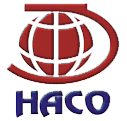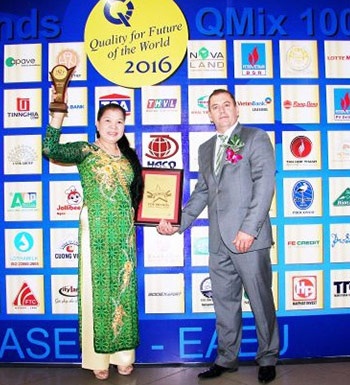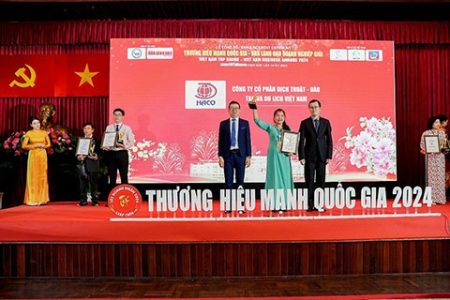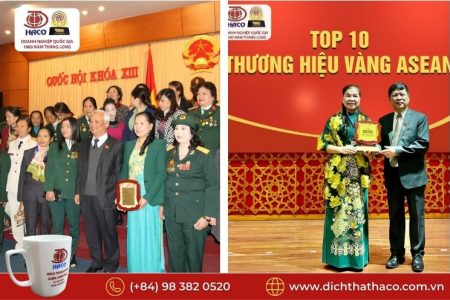"Experience the Power of Korean Translation - Unlock the Language of the Future!"
What is Korean translation?
Korean translation is an important part of the global language industry. It is a complex process that requires a deep understanding of the language, culture, and context of the source and target languages. Korean translation is a specialized field that requires a high level of expertise and experience. Professional Korean translators must have a thorough knowledge of the language, its grammar, and its nuances. They must also be familiar with the cultural and social context of the source and target languages. Korean translation is a challenging task, but with the right skills and resources, it can be a rewarding and successful endeavor.
The Benefits of Learning Korean for Translation Purposes
Learning Korean for translation purposes can be a highly beneficial endeavor. Korean is a language spoken by over 75 million people worldwide, making it the 15th most spoken language in the world. As such, it is an important language to learn for those interested in translation. Here are some of the benefits of learning Korean for translation purposes.
First, learning Korean can open up a wide range of job opportunities. As the demand for Korean translation services continues to grow, so too does the need for qualified translators. Those who are proficient in Korean can find work in a variety of fields, including business, government, and education.
Second, learning Korean can help to improve one’s understanding of other languages. Korean is a language that is closely related to Japanese and Chinese, and by learning Korean, one can gain a better understanding of these other languages. This can be especially helpful for those who are interested in translation between these languages.
Third, learning Korean can help to improve one’s cultural understanding. Korean culture is rich and diverse, and by learning the language, one can gain a better understanding of the culture and its people. This can be beneficial for those who are interested in translation between Korean and other languages.
Finally, learning Korean can be a great way to expand one’s knowledge and skills. Korean is a complex language, and by learning it, one can gain a better understanding of the language and its nuances. This can be beneficial for those who are interested in translation between Korean and other languages.
In conclusion, learning Korean for translation purposes can be a highly beneficial endeavor. It can open up a wide range of job opportunities, help to improve one’s understanding of other languages, improve one’s cultural understanding, and expand one’s knowledge and skills. For these reasons, learning Korean for translation purposes is a worthwhile endeavor.
The Role of Cultural Context in Korean Translation
The role of cultural context in Korean translation is an important factor to consider when translating from one language to another. In the case of Korean translation, cultural context plays a significant role in the accuracy and effectiveness of the translation.
Korean is a language that is heavily influenced by its culture and history. As such, it is important to understand the cultural context of the language in order to accurately translate it. This includes understanding the nuances of the language, such as the use of honorifics, the use of certain words and phrases, and the cultural implications of certain words and phrases.
For example, the Korean language has a variety of honorifics that are used to show respect to the person being addressed. These honorifics are used in both formal and informal contexts, and it is important to understand the nuances of each honorific in order to accurately translate them. Additionally, certain words and phrases may have different meanings depending on the context in which they are used. For example, the word “사랑해요” can mean “I love you” in a romantic context, but can also mean “I like you” in a more platonic context.
In addition to understanding the nuances of the language, it is also important to understand the cultural implications of certain words and phrases. For example, the phrase “잘 먹겠습니다” is commonly used in Korean to express gratitude for a meal. However, this phrase can also be interpreted as a sign of respect for the person who prepared the meal. As such, it is important to understand the cultural implications of this phrase in order to accurately translate it.
Overall, the role of cultural context in Korean translation is an important factor to consider when translating from one language to another. Understanding the nuances of the language, as well as the cultural implications of certain words and phrases, is essential for accurate and effective translation.
The Impact of Machine Translation on Korean Translation
Machine translation (MT) has had a significant impact on the field of Korean translation. MT is a form of translation that uses computer algorithms to automatically translate text from one language to another. It has become increasingly popular in recent years due to its ability to quickly and accurately translate large amounts of text.
The use of MT in Korean translation has had both positive and negative effects. On the positive side, MT has made it much easier and faster to translate large amounts of text. This has allowed translators to focus on more complex tasks, such as ensuring that the translated text is accurate and conveys the intended meaning. Additionally, MT has made it possible to translate text into multiple languages at once, which has been a great benefit for businesses that need to communicate with customers in multiple languages.
On the other hand, MT has also had some negative effects on Korean translation. For example, MT is not always able to accurately capture the nuances of the language, which can lead to mistranslations. Additionally, MT is not able to take into account the cultural context of the text, which can lead to misunderstandings. Finally, MT is not able to provide the same level of accuracy as a human translator, which can lead to errors in the translated text.
Overall, the impact of MT on Korean translation has been both positive and negative. While it has made it easier and faster to translate large amounts of text, it has also led to some potential issues with accuracy and cultural context. As such, it is important for translators to be aware of the potential pitfalls of MT and to use it judiciously.
HACO TRANSLATION COMPANY – THE 1ST PRESTIGIOUS TRANSLATION SERVICE PROVIDER IN VIETNAM

COME WITH HACO TO FEEL THE DIFFERENCE AND COMPARE;
YOU WILL SEE THE BRAND WORTHY TO CHOOSE
20 years of accompanying enterprises
How to Choose the Right Korean Translation Software
Choosing the right Korean translation software can be a daunting task. With so many options available, it can be difficult to determine which one is best suited for your needs. Here are some tips to help you make the right decision:
1. Consider the type of translation you need. Different software programs are designed for different types of translations. For example, some are designed for translating documents, while others are better suited for translating websites or audio files. Make sure the software you choose is designed for the type of translation you need.
2. Look for features that are important to you. Different software programs offer different features. Some may offer more advanced features such as machine translation, while others may be more basic. Consider the features that are important to you and make sure the software you choose has them.
3. Check the accuracy of the translation. Accuracy is an important factor when choosing a translation software. Make sure the software you choose is accurate and reliable.
4. Read reviews. Reading reviews from other users can help you get an idea of how well the software works. This can help you make an informed decision about which software is best for you.
5. Consider the cost. Different software programs have different price points. Make sure you choose a software that fits within your budget.
By following these tips, you can make sure you choose the right Korean translation software for your needs.
See more : LIST OF COMPANIES WITH TYPICAL TRANSLATION PROJECT CONTRACTS
The Challenges of Translating Korean Slang and Idioms
Translating Korean slang and idioms can be a challenging task for even the most experienced translators. This is because slang and idioms are often highly contextual and can be difficult to interpret without a thorough understanding of the culture and language.
Slang is a type of informal language that is used in everyday conversations. It is often used to express emotions or to add emphasis to a statement. Slang words and phrases can vary greatly from region to region and can even change over time. This makes it difficult to accurately translate slang words and phrases into another language.
Idioms are phrases that have a figurative meaning that is different from the literal meaning of the words. Idioms are often used to express emotions or to convey a message in a more creative way. Idioms can also vary greatly from region to region and can be difficult to interpret without a thorough understanding of the culture and language.
When translating Korean slang and idioms, it is important to consider the context in which the words are being used. It is also important to consider the cultural implications of the words and phrases. For example, some words and phrases may have different meanings in different cultures. It is also important to consider the tone of the conversation and the intended audience.
In addition, it is important to consider the target language when translating Korean slang and idioms. It is important to ensure that the translation is accurate and that the meaning of the words and phrases is preserved. It is also important to consider the grammar and syntax of the target language when translating Korean slang and idioms.
Overall, translating Korean slang and idioms can be a challenging task for even the most experienced translators. It is important to consider the context, cultural implications, and target language when translating these words and phrases. With careful consideration and a thorough understanding of the culture and language, it is possible to accurately translate Korean slang and idioms into another language.

The Benefits of Professional Korean Translation Services
Professional Korean translation services provide a number of benefits to businesses and individuals alike. By utilizing the services of a professional translator, businesses can ensure that their documents, websites, and other materials are accurately translated into Korean. This can help to ensure that their message is accurately conveyed to their target audience.
For individuals, professional Korean translation services can help to ensure that important documents, such as legal documents, are accurately translated. This can help to ensure that the documents are legally binding and that the individual’s rights are protected. Additionally, professional Korean translation services can help to ensure that important documents, such as birth certificates, marriage certificates, and other important documents, are accurately translated.
Professional Korean translation services can also help to ensure that businesses and individuals are able to communicate effectively with their Korean counterparts. By utilizing the services of a professional translator, businesses and individuals can ensure that their message is accurately conveyed to their target audience. This can help to ensure that the message is understood and that the desired outcome is achieved.
Finally, professional Korean translation services can help to ensure that businesses and individuals are able to effectively market their products and services to the Korean market. By utilizing the services of a professional translator, businesses and individuals can ensure that their message is accurately conveyed to their target audience. This can help to ensure that the desired outcome is achieved and that the business or individual is able to effectively reach their target audience.
Overall, professional Korean translation services provide a number of benefits to businesses and individuals alike. By utilizing the services of a professional translator, businesses and individuals can ensure that their message is accurately conveyed to their target audience. This can help to ensure that the desired outcome is achieved and that the business or individual is able to effectively reach their target audience.












